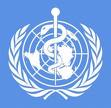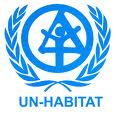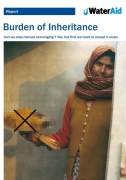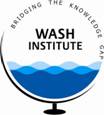/topics/sanitation-and-hygiene
Sanitation and Hygiene
Bihar needs to build 6,900 toilets a day to keep promise of total sanitation - A survey report by WaterAid (2009)
Posted on 01 May, 2010 04:51 PMThis brief report highlights the findings of an evaluation study conducted by WaterAid, India of the Total Sanitation Campaign (TSC), a national programme in India that ensures sanitation facilities in rural areas to eradicate open defecation. The study was conducted in the five states of Bihar, Chhattisgarh, Tripura, Karnataka and Haryana. This document highlights the findings of the evaluation study in the state of Bihar.
International Conference on Water, Plumbing Sanitation & Health : Issues & Challenges, Bangalore University, Bangalore
Posted on 30 Apr, 2010 11:27 PMThemes: Water Plumbing Sanitation & Health-Issues & Challenges
2010 UN-Water Global Annual Assessment of Sanitation and Drinking-Water (GLAAS)
Posted on 27 Apr, 2010 01:18 PM
The Global Annual Assessment of Sanitation and Drinking-Water (GLAAS) is a UN-Water initiative implemented by the World Health Organization (WHO). The objective of UN-Water GLAAS is to provide policy makers at all levels with a reliable, easily accessible, comprehensive and global analysis of the evidence to make informed decisions in sanitation and drinking-water.
With over 2.6 billion people living without access to improved sanitation facilities, and nearly 900 million people not receiving their drinking-water from improved water sources, UN-Water GLAAS highlights where efforts stagnate in achieving the Millennium Development Goal Target 7.C.¬ to halve, by 2015, the proportion of people without sustainable access to safe drinking-water and basic sanitation. It also highlights the post-2015 challenges that need to be addressed by the United Nations system to collectively support its Member States.
Financing on-site sanitation for the poor: A six country comparative review and analysis - A report by WSP (World Bank)
Posted on 20 Apr, 2010 06:58 PMThis report by the Water and Sanitation Programme (WSP) draws attention to the fact that a very high percentage (40%) of the population in the world does not have access to basic level of sanitation, which has serious health consequences and puts a considerable economic burden on the poor. The report explores the issue of what can be the most appropriate financing mechanisms to meet the sanitation needs of the poor.
Rejuvenation of community toilets - A policy paper by UN-HABITAT and Government of Madhya Pradesh
Posted on 20 Apr, 2010 04:12 PM The policy paper examines the condition of community toilet in terms of its infrastructure, operation & maintenance, uses and payment of user charges. The paper is a result of a joint collaboration between Water for Asian Cities (WAC) Programme of UN-HABITAT and the Directorate of Urban Administration & Development, Government of Madhya Pradesh.
The policy paper examines the condition of community toilet in terms of its infrastructure, operation & maintenance, uses and payment of user charges. The paper is a result of a joint collaboration between Water for Asian Cities (WAC) Programme of UN-HABITAT and the Directorate of Urban Administration & Development, Government of Madhya Pradesh.
In Madhya Pradesh, WAC is supporting Asian Development Bank-financed project in cities of Bhopal, Gwalior, Indore and Jabalpur to improve and expand urban water and sanitation services. This study has been taken up to monitor implementation of the water and sanitation related targets.
Burden of Inheritance: Can we stop manual scavenging? – A report by WaterAid India
Posted on 19 Apr, 2010 04:28 PM This report by WaterAid outlines how over one million people in the country continue to scrape an existence through manual scavenging, forced largely by social convention and caste prejudice, and calls for strong action to eradicate this practice.
This report by WaterAid outlines how over one million people in the country continue to scrape an existence through manual scavenging, forced largely by social convention and caste prejudice, and calls for strong action to eradicate this practice.
A violation of human rights, this discriminatory and demeaning practice was outlawed by the Indian Parliament in 1993 but still continues today. India has missed three deadlines to make the country 'manual-scavenger free'. India's booming cities help keep the practice alive, as there is often little infrastructure for sanitary sewerage and waste disposal systems.
The report tries to seek answers to why this practice continues despite:
- Availability of other dignified livelihood sources, for the people in this occupation?
- Other cleaner options for survival existing in cities and towns?
- Feasible and viable technological alternatives being available to dry toilets, one of the drivers of this occupation?
Cost Effective Sustainable Sanitation – An Indian Experience, WASH, New Delhi
Posted on 13 Apr, 2010 11:30 AMWater, Sanitation and Hygiene (WASH) Institute National Conference
Theme:“Cost Effective Sustainable Sanitation – An Indian Experience”

Organizers:
WASH Institute, Plan India, Ministry of Rural Development, Government of India, UNICEF, WES-Net India, Government of India, member agencies
Venue:
Indian Habitat Centre (IHC), Lodhi Road, New Delhi, India
Description:
Water, Sanitation and Hygiene (WASH) Institute is aiming to organize a national level conference on sanitation.WASH Institute is planning to bring all the key sector players / practitioners together to share their success stories and approaches in promoting sustainable sanitation in the country to overcome some of the key challenges. Also to define the strategy to scale-up good practices in an efficient and effective ways towards making open defecation free nation. The proposed national meet would be a mini sanitation conference before SACOSAN IV in Sri Lanka next year.
Longest toilet queue campaign by WaterAid Orissa in Puri
Posted on 07 Apr, 2010 04:06 PMThe World's Longest Toilet Queue on 20th March 2010 at Puri sea beach.
Click on the attachment to read the entire report.
NWS has developed a self sustainable flush toilet system - SMARTSAN
Posted on 01 Apr, 2010 01:38 PMEXECUTIVE SUMMARY
Introduction
It is a well documented fact that the combination of safe drinking water and hygienic sanitation facilities is a precondition for health and for success in the fight against poverty, hunger, child deaths and gender inequality. Yet 2.6 billion people – half the developing world – lack even a simple ‘improved’ latrine. One person in six – more than 1 billion of our fellow human beings – has little choice but to use potentially harmful sources of water.
Bharat Integrated Social Welfare Agency (BISWA) ,Orissa, organises Clean water for healthy world program
Posted on 01 Apr, 2010 12:27 PMBharat Integrated Social Welfare Agency (BISWA) is a social development agency based in Orissa and working across 14 other states through its integrated micro finance programme to extend women empowerment and social development objectives.





